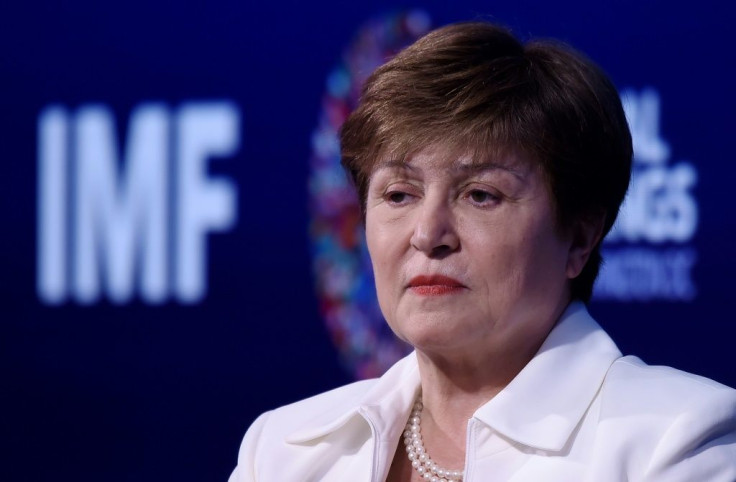CBDCs Better Option Than Other Crypto, Says IMF Chief
KEY POINTS
- IMF MD says CBDCs better than other cryptocurrencies
- Many countires like India, China, Bahamas have plans for their own CBDC
- She also highlighted the role of IMF in the age of CBDCs
Crypto assets and stable coins are no match for well-designed central bank digital currencies (CBDCs), the IMF's chief said, coming in on the side of central banks in the deepening debate over the ramifications of wider crypto adoption to economic stability.
“If CBDCs are designed prudently, they can potentially offer more resilience, more safety, greater availability, and lower costs than private forms of digital money,” Kristalina Georgieva, managing director of the International Monetary Fund (IMF), said last week.
She spoke on the future of money, cryptocurrency, and CBDCs at the Atlantic Council in Washington, D.C.
Noting that central banks have progressed beyond conceptual conversations and are now experimenting with digital currencies, she said, “These are still early days for CBDCs and we don’t quite know how far and how fast they will go.”
She added: "That is obviously the case when compared to unbacked crypto assets, which are fundamentally volatile. And even the more carefully controlled and regulated stablecoins may fall short of a stable and well-designed central bank digital currency."
She said over 100 countries are investigating central bank digital currencies.
It is worth noting that many countries have plans to launch their own digital currencies to compete with cryptocurrencies. For example, the Sand Dollar in the Bahamas, Sweden's Riksbank's proof-of-concept Sand Dollar, India's plans for Digital Rupee and China's e-CNY. Also, the U.S. Federal Reserve released a report on CBDCs last month.
Georgieva said that the IMF is actively involved in this subject, offering technical help to its members. She also made it clear that the fund's responsibility in the age of CBDCs would be to facilitate experience sharing and to foster CBDC interoperability.
She also discussed some of the lessons learned by various central banks from their digital currency initiatives. She said there is no one-size-fits-all case for CBDCs because each economy is unique. As a result, central banks should adjust their programs to their unique conditions and requirements.
She also emphasized the importance of financial stability and privacy considerations in creating CBDCs. As a result, policymakers must strike the correct balance.
Georgieva concluded her speech by saying, "The history of money is entering a new chapter. Countries seek to preserve key aspects of their traditional monetary and financial systems while experimenting with new digital forms of money.

© Copyright IBTimes 2025. All rights reserved.





















